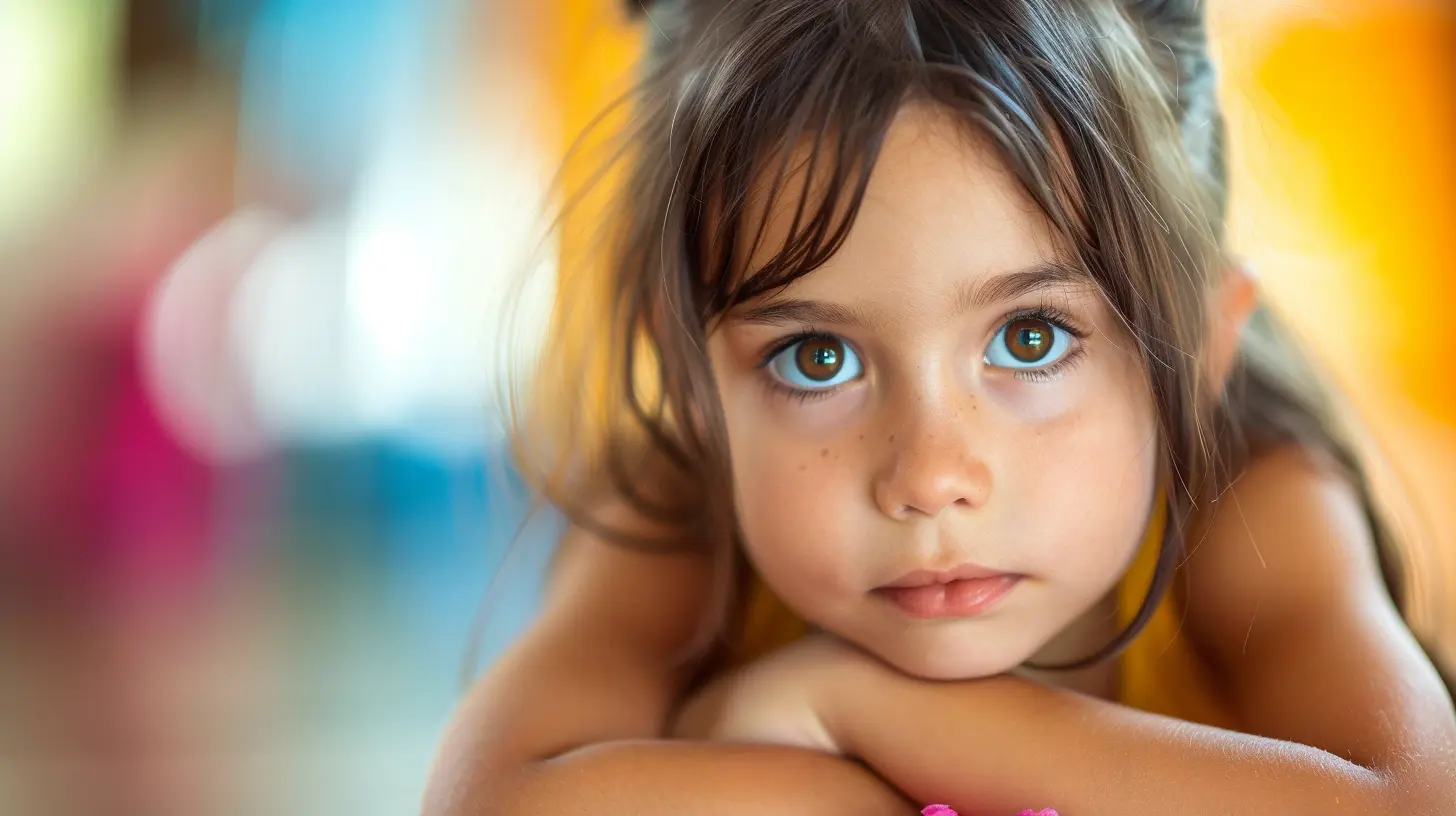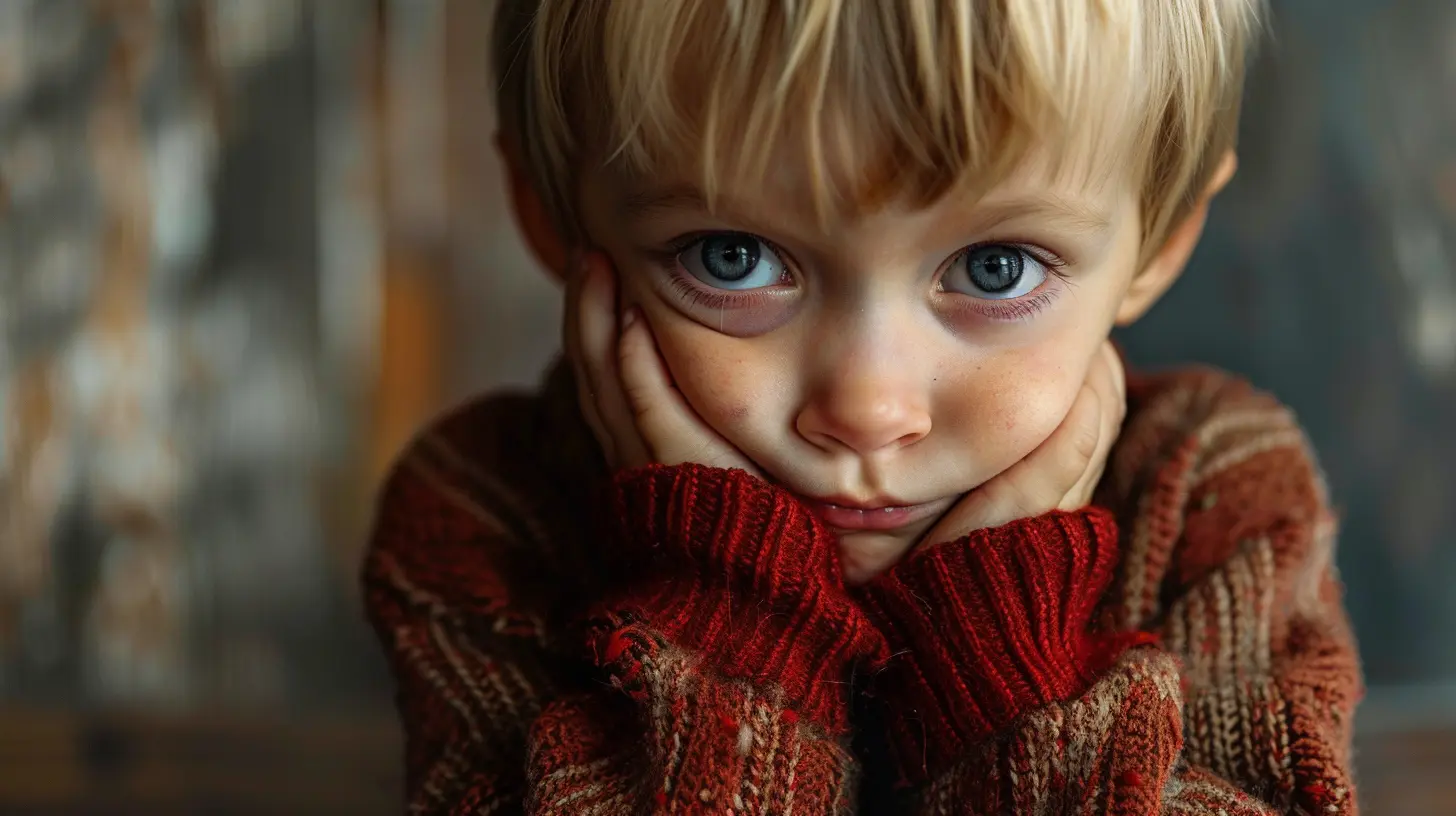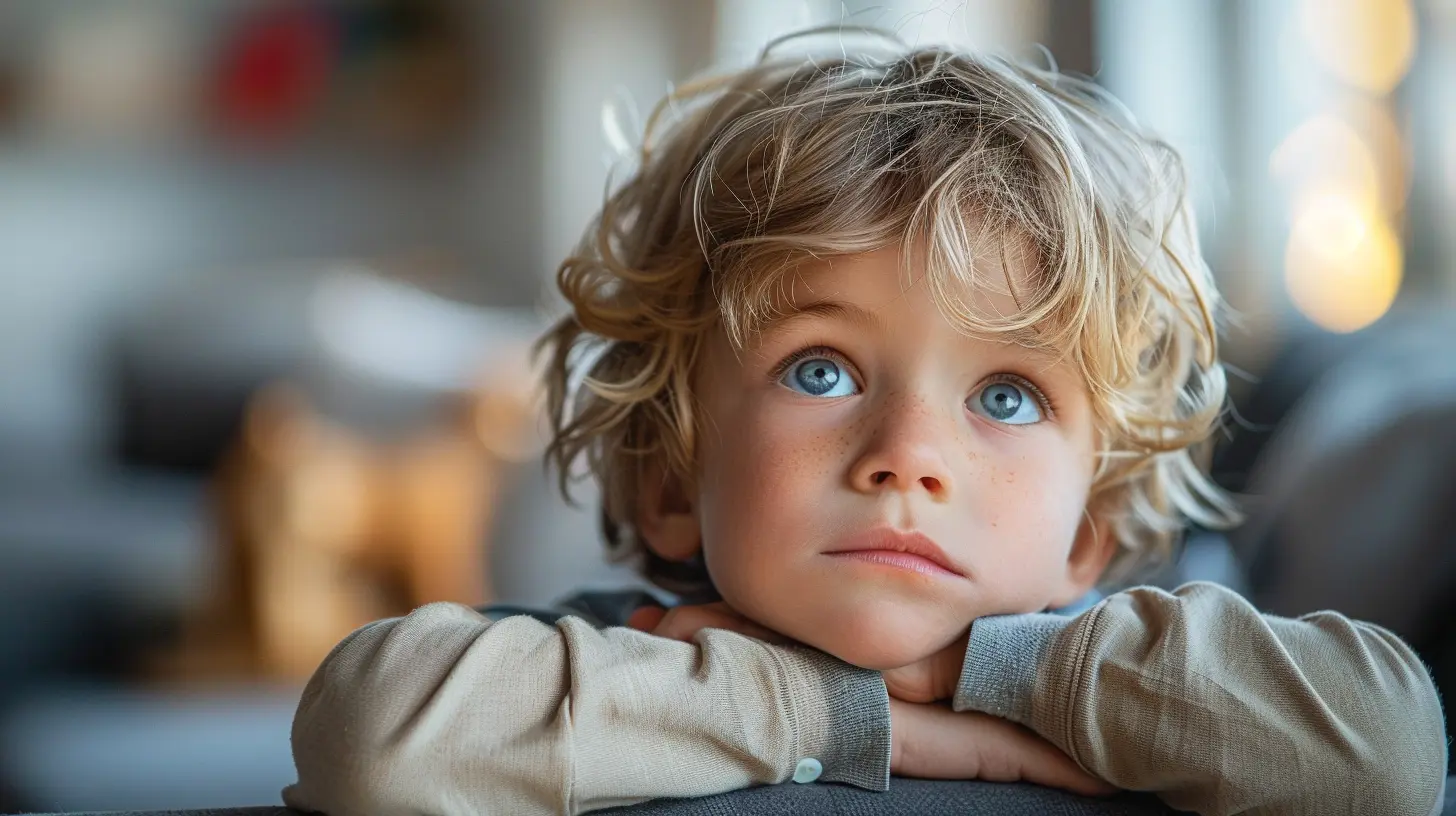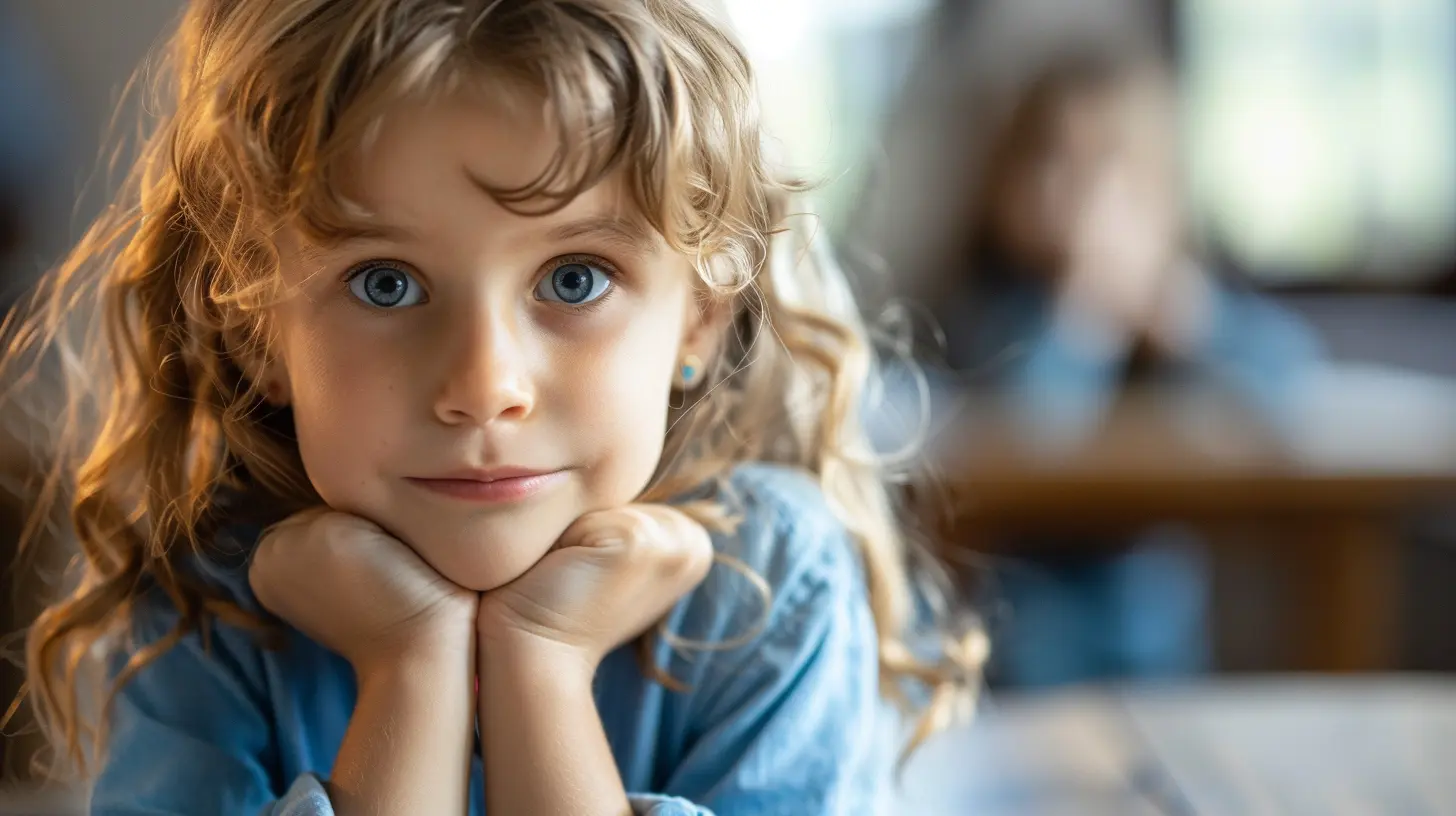Understanding Emotional Development in Early Childhood
14 March 2025
Emotional development in early childhood is a magical, yet complex journey. It’s like watching a tiny seed slowly bloom into a vibrant flower, with every petal representing a new feeling or skill. If you’re a parent, caregiver, or just someone interested in how little humans grow emotionally, you’ve probably asked yourself: How does it all happen? How do children learn to express, manage, and understand their emotions?
In this article, we'll dive deep into this fascinating topic, unpacking the stages of emotional development, the role of caregivers, how to support young children, and so much more. So, grab a cup of coffee (or tea), and let’s explore the wonderland of early childhood emotional growth.
What Is Emotional Development in Early Childhood?
First things first—what exactly is emotional development? Simply put, it’s how kids learn to understand, express, and manage their emotions while building relationships with those around them.Think of it like learning a new language. At first, babies cry, coo, and smile—these are their “words.” Over time, they pick up the “grammar” of emotions: recognizing feelings in others, expressing empathy, and self-regulating their reactions. By the time they’re heading to kindergarten, they’re little emotional linguists (okay, maybe not fluently, but they’re getting there!).
Why Is Emotional Development Important?
You might be wondering: Why does emotional development matter so much? Can’t kids just “figure it out” as they grow?Well, not quite. Emotional development lays the foundation for a child’s mental health, social skills, and even their success later in life. It’s the emotional toolkit that helps them navigate challenges, build relationships, and feel good about themselves.
Think of it this way: If cognitive development is the engine that drives a child’s learning, emotional development is the oil that keeps everything running smoothly. Without it, the whole system can grind to a halt.
The Stages of Emotional Development in Early Childhood
Emotional development doesn’t happen all at once—it’s an ongoing process. Let’s break it down into stages to see how it unfolds.1. Infancy (0–12 Months): The Foundation Stage
During the first year of life, babies are emotional sponges. They may not be able to speak, but they sure know how to feel! In this stage, emotions are simple: joy, anger, sadness, and fear. Babies express these feelings through crying, laughing, and making all those adorable baby noises.How does this stage work? It’s all about attachment. When caregivers respond to a baby’s needs with love and consistency, the baby develops a sense of trust. This secure attachment becomes the foundation for all future emotional growth.
2. Toddlerhood (1–3 Years): The "Big Feelings" Phase
Ah, toddlerhood—the age of tantrums and “No, I do it!” moments. This is when kids start to experience a wider range of emotions, like frustration, shame, and pride. But here’s the kicker: they don’t yet know how to manage these feelings.Imagine a soda can being shaken up and then popped open. That’s a toddler’s emotional world in a nutshell. They feel everything big—and they’ll let you know about it! This is also when they start to show empathy, like offering their favorite toy when you look sad (cue the “aww!”).
3. Preschool Age (3–5 Years): Emotional Awareness
By the time kids hit preschool, they’re starting to develop emotional intelligence. They can name their feelings (“I’m mad!”), understand the feelings of others, and even begin to regulate their emotions (though meltdowns are still totally normal).This stage is huge for social-emotional skills. Kids learn to share, take turns, and resolve conflicts (or at least attempt to). It’s like they’re practicing for the emotional Olympics—repeating the same moves over and over until they get it right.
The Role of Caregivers: Why You Matter More Than You Think
Let’s get one thing straight: You, as a caregiver, play a massive role in a child’s emotional development. Think of yourself as the emotional mirror. Your child looks to you to figure out how to respond to their emotions and the world around them.When you show calmness during a tantrum or express empathy when they’re upset, you’re teaching them how to handle emotions. On the flip side, if a child grows up in an environment where emotions are ignored or punished, they may struggle to manage their feelings later in life.
So, what can you do to help? Here are a few tips:
1. Be Their Emotion Coach
Help your child name their emotions. For example, if they’re stomping their feet, you might say, “You seem really frustrated. Do you want to tell me what’s wrong?” This not only validates their feelings but also gives them the vocabulary to express themselves.2. Model Healthy Emotional Habits
Children are like little detectives—they’re constantly observing and mimicking your behavior. If you manage stress by yelling or shutting down, they might pick up the same coping mechanisms. Instead, model healthy habits like deep breathing, talking about your feelings, or taking a break when you’re overwhelmed.3. Create a Safe Emotional Space
Let your child know it’s okay to feel whatever they’re feeling, whether it’s sadness, anger, or even jealousy. The key is to guide them toward healthy ways of expressing those emotions.How to Support Emotional Development at Each Stage
So, what does emotional support look like in practical terms? Here’s a stage-by-stage guide:For Infants:
- Provide consistent care and cuddles to build trust.- Respond to their cries—they’re not “manipulating” you; they’re communicating.
- Make lots of eye contact and use a warm, soothing tone.
For Toddlers:
- Acknowledge their emotions, even during tantrums (“I know you’re upset because you can’t have the cookie right now.”).- Offer simple choices to give them a sense of control.
- Teach them basic calming techniques, like hugging a stuffed animal or taking a deep breath.
For Preschoolers:
- Encourage them to talk about their feelings.- Role-play social scenarios to help them practice empathy and conflict resolution.
- Read books about emotions (like The Color Monster or When Sophie Gets Angry—Really, Really Angry).
Red Flags: When to Seek Help
While most kids develop emotional skills on their own timeline, there are times when extra support might be needed. Here are some signs to watch for:- Difficulty forming attachments or showing affection.
- Extreme difficulty regulating emotions (e.g., prolonged tantrums beyond the age of 4–5).
- Persistent withdrawal or lack of interest in social interactions.
- Aggressive behavior that doesn’t improve with guidance.
If you’re concerned, don’t hesitate to reach out to a pediatrician or child psychologist. Early intervention can make a world of difference.
Wrapping It All Up
Emotional development in early childhood is a beautiful and sometimes challenging process. It’s not always smooth sailing—there will be tantrums, tears, and tough moments. But it’s also incredibly rewarding. Watching a child grow into an emotionally aware, empathetic little human is one of life’s greatest joys.Remember, as a caregiver, you’re not expected to be perfect. You’re learning and growing, too. Just show up with love, patience, and a willingness to learn alongside your child. And hey, if all else fails, there’s always chocolate (for you, not the toddler!).
all images in this post were generated using AI tools
Category:
Childrens HealthAuthor:

Tiffany Foster
Discussion
rate this article
8 comments
Dash Cummings
“Understanding emotional development in early childhood is like assembling IKEA furniture: it takes patience, a good manual (or blog!), and occasionally, a lot of humor to make it all fit together!”
April 3, 2025 at 4:09 PM

Tiffany Foster
Absolutely! Just like IKEA furniture, emotional development requires guidance and a little creativity to build a strong foundation.
Kaitlyn Forbes
Great insights on emotional development! Understanding these stages is crucial for fostering healthy childhood growth.
April 1, 2025 at 3:06 AM

Tiffany Foster
Thank you! I'm glad you found the insights valuable for fostering healthy emotional growth in children.
Falkor Rosales
Emotional development in early childhood is the foundation for lifelong mental health. By nurturing empathy and resilience, we equip children with essential tools for navigating their emotions, relationships, and ultimately, the complexities of life. Early investment pays off!
March 30, 2025 at 4:17 PM

Tiffany Foster
Thank you for your insightful comment! I completely agree that early emotional development is crucial for fostering resilience and empathy, which are vital for lifelong mental health. Investing in our children’s emotional well-being truly pays off in the long run!
Rylan Gonzalez
Unlocking the secrets of emotional growth in early childhood reveals a hidden world where feelings shape futures—what mysteries lie beneath the surface?
March 29, 2025 at 5:08 AM

Tiffany Foster
Emotional growth in early childhood lays the foundation for future relationships and resilience, revealing complex layers of development that influence lifelong emotional health.
Cerys McKibben
Emotional growth shapes lifelong interpersonal skills.
March 28, 2025 at 3:29 AM

Tiffany Foster
Absolutely! Emotional growth in early childhood lays the foundation for essential interpersonal skills that benefit relationships throughout life.
Zealot Roberts
What a wonderful article! Understanding emotional development is crucial for nurturing our little ones. It's amazing how these early experiences shape their future. Thank you for shedding light on such an important topic!
March 22, 2025 at 4:00 PM

Tiffany Foster
Thank you for your kind words! I'm glad you found the article valuable. Understanding emotional development is indeed key to supporting our children's growth.
Jocelyn McKale
Essential insights for parents!
March 16, 2025 at 3:30 AM

Tiffany Foster
Thank you! I’m glad you found the insights valuable for parenting.
Storm Valentine
Great insights! Understanding emotional development in early childhood is vital for nurturing resilience and empathy. Let's continue to support our little ones as they grow and learn to express themselves.
March 14, 2025 at 3:23 PM

Tiffany Foster
Thank you! I completely agree—supporting emotional development is crucial for fostering resilience and empathy in young children.
MORE POSTS

How to Develop a Balanced Strength Training Program

Balancing Carbs and Protein on a Whole-Food Vegan Diet

Heart-Smart Substitutes for Your Favorite Meals

How Superfoods Can Aid in Faster Recovery from Illness

The Best Strength Exercises for Runners

Training Frequency: How Often Should You Hit the Weights?